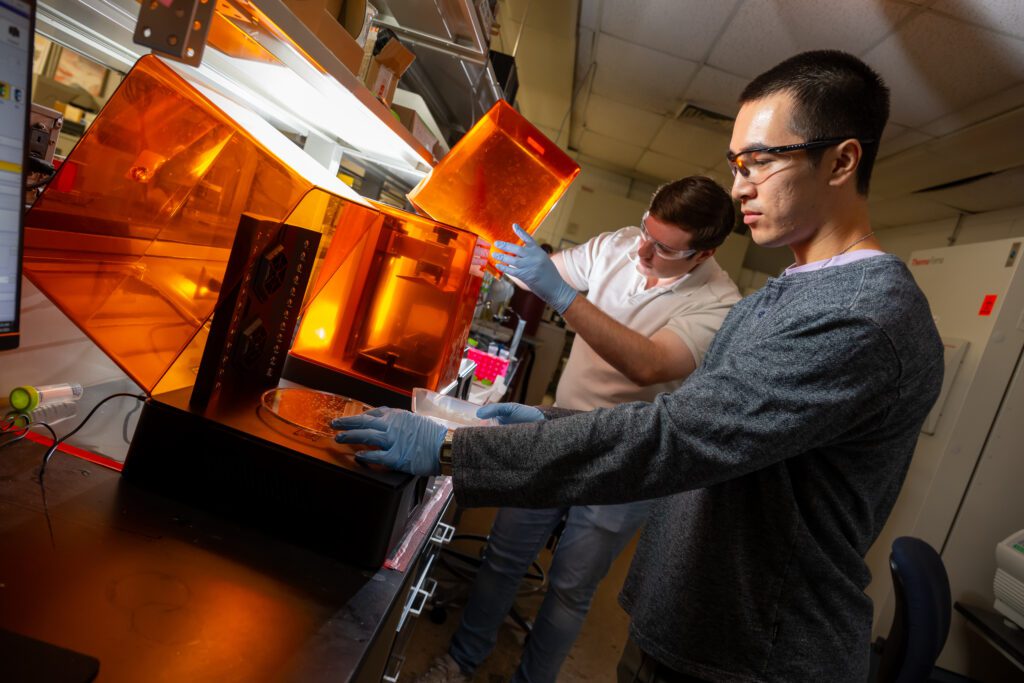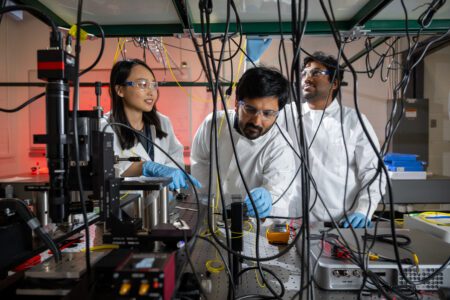The rise of artificial intelligence (AI) marks a fundamental shift in the field of engineering, moving beyond traditional computational modelling. AI is now an indispensable tool across virtually every engineering discipline, from civil and mechanical to software and aerospace. As AI use keeps growing, the best universities are evolving to meet the demand for AI-fluent engineers.
The University of Maryland is one of them. Maryland Applied Graduate Engineering has launched a new Engineering Artificial Intelligence Master of Engineering (M.Eng.) programme that’ll place you at the forefront of innovation in engineering and emerging technologies.
“AI has been developing for some time now, focusing mostly on algorithms and programming aspects,” says Dr. Sennur Ulukus. “Engineering AI brings traditional AI into physical engineering systems such as robotics, autonomous driving, material discovery, and medical AI where algorithms and physical systems come together to enable practical applications.”
The curriculum has breadth and depth. You’ll explore foundational AI principles and advanced technical skills in areas such as machine learning, data analytics, and embedded systems. Modules venture into AI’s application in physical engineering systems too, like in robotic systems, medical devices, and communication circuits.

Engineering AI is part of a larger investment the university is making to broaden opportunities in AI. Source: University of Maryland
The four required courses are Probability and Statistics for Engineering AI, Numerical Methods for Engineering AI, Foundations of Machine Learning for Engineering AI, and Foundations of Data Science for Engineering AI. Complementing these are two specialisations – you can choose to focus on Generative AI, Large Language Models, Deep Learning or Ethical and Sustainable AI. You can customize your degree further by selecting four technical electives ranging from robotics and cybersecurity to cloud engineering and data science and analytics, enhancing the curriculum further.
“Students will master fundamentals of AI algorithms, they will learn how machine learning algorithms work, what are the components of a learning system, how deep neural networks work, how generative AI systems work, what are the state-of-the-art learning models available today, what are some of the ethical issues surrounding responsible use of AI as well as how AI is used in engineering systems such as computer vision, speech analysis and natural language processing, use of AI in material science, and biomedical systems, and so on,” Dr. Ulukus says.
A huge part of the curriculum is applied. Almost all courses offer extensive assignments, hands-on experiments, and project components to hone practical know-how. This is to prepare you to immediately make an impact on some of today’s most in-demand roles at the intersection of engineering and AI technology whether that’s as an AI engineer, data engineer, NLP specialist, or user experience developer.
Part of a larger investment in AI
The master’s programme represents only one facet of The University of Maryland’s investment in AI. In April 2024, it launched the Artificial Intelligence Interdisciplinary Institute at Maryland (AIM), a hub to unite experts across campus to focus on the responsible and ethical development and use of AI. AIM brings together over 100 faculty, more than 200 courses across 50-plus departments, and has produced over 1,000 AI‑related publications in the past five years.
AIM coordinates new AI majors and minors, incorporates AI into certificates and graduate degrees, expands undergraduate courses to develop AI literacy early on, organises community events, finances interdisciplinary AI research, and so much more.

The Artificial Intelligence Interdisciplinary Institute at Maryland (AIM) is dedicated to developing the next generation of AI education, technology and leaders. Source: University of Maryland
These interdisciplinary efforts reflect the broader AI ecosystem you can tap into upon choosing this new M.Eng. Through the university’s ongoing initiatives — from ethical AI research to cross-disciplinary collaborations — you will gain access to cutting-edge projects, mentors, and opportunities that bridge theory and practice.
That ecosystem extends far beyond the classroom. In the Washington metropolitan area — home to national labs, tech companies, and policy leaders — you’ll learn alongside and from some of the most consequential figures shaping the future of AI. Through seminars, collaborations, and research partnerships, you’ll see how your classroom knowledge powers innovation in real-world contexts.
“Engineering AI students will be equipped with knowledge that will prepare them for jobs at the intersection of engineering and AI,” Dr. Ulukus says. “Almost all industries now, from aerospace to defense to manufacturing to information security to transportation, have engineering and AI aspects in them.”
For every aspiring engineer ready to lead in the age of intelligent systems, this is more than a master’s — it’s your entry point into one of the most dynamic AI networks in the nation.











